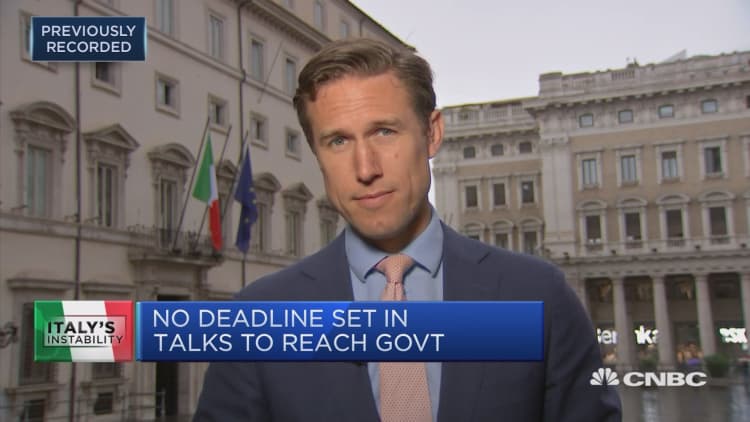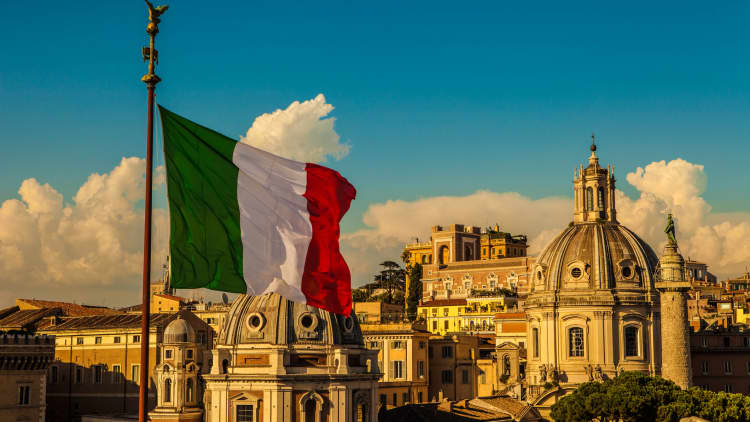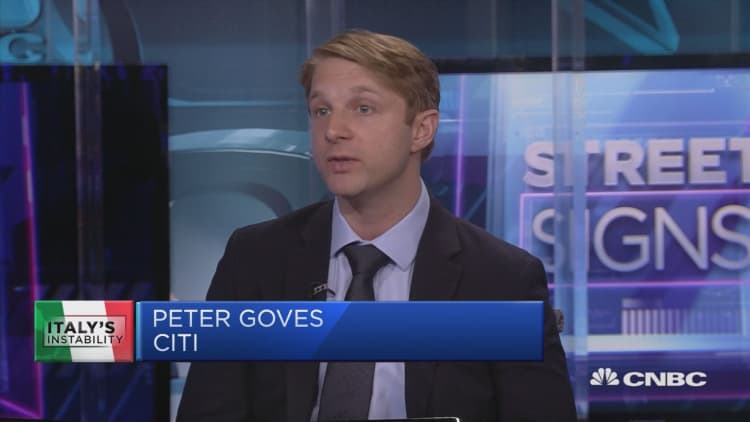Two Italian populist parties that are expected to lead the next government have asked for more time to reach a coalition agreement — prolonging political uncertainty that has enshrouded the country since early March.
The Five Star Movement (M5S) and Lega — the former was the most popular single party at the March general election while the latter gathered the highest amount of votes within a right-wing coalition — have been in negotiations for more than two months, trying to overcome their differences. They had until Sunday night to come up with an agreement, but have asked the Italian president for a few more days to prepare the final details of their deal.
"It seems that serious frictions have started to emerge between the two parties," UniCredit analysts said in a note Tuesday morning.
"While to us there appears that there is agreement on several key policy areas, divergences have been emerging on such thorny issues as immigration, justice and the relationship with the EU," they added.

The leader of the left-wing M5S, Luigi di Maio, said Monday that they need more time to hash out the details because they are drafting a five-year government program. He added that so far the two parties have managed to agree changes to the pension system, to impose jail terms for those evading taxes, and to fight corruption.
But there are other sticking points, including who will be the next prime minister.
Euroskeptic Lega leader Matteo Salvini also said Monday that hopefully there is a deal with the M5S that will change EU fiscal rules. It is one of his campaign pledges to renegotiate with Brussels a higher deficit so the new government can increase public spending more easily.

The right-wing party will be putting the final deal with M5S to a party vote next weekend. Supporters will be asked to say "yes" or "no" to the coalition deal.
President Sergio Mattarella has allowed a few more days for the two parties to compromise, but it is unclear if this means until the end of the week or earlier. Mattarella had warned last week that without a political agreement between M5S and Lega, there will be fresh elections.
The president, who has the final say in approving who forms the next government, wanted a caretaker government to govern Italy until the end of the year, with elections at the start of next year. But this option was rejected by the two populist parties.
As a result, if they do not bridge their differences in the coming days, Italy would have to repeat the March vote in the coming months, potentially after the summer.
Nonetheless, Italian borrowing costs fell lower Tuesday morning despite the ongoing political uncertainty in the third largest euro zone economy.

The yield on the 10-year Italian paper was down by 0.5 basis points at 1.9020 percent in early European trading hours. Prior to the market open, the yield on the 10-year bond was actually close to two-month highs. Yields move inversely to the price of a bond.
According to Lyn Graham-Taylor, a strategist at Rabobank, there are investors who are "willing to carry through the political risk."
"There is some optimism that the new prime minister will be a civilized force," he told CNBC over the phone.
However, Rabobank is neutral on Italian debt on concerns that the new executive will increase public spending and thus add further pressure on the country's finances. Italy's debt-to-GDP (gross domestic product) currently stands at about 130 percent.


